CDC’s Commitment to Disability Inclusion
This year, as we recognize the 34th anniversary of the Americans with Disabilities Act (ADA), CDC celebrates the significant advances the public health community has made to reduce health disparities and improve inclusion for the disability community. However, there is still much work to do to ensure people with disabilities can access the same health care as people without disabilities and achieve positive health outcomes.
People with disabilities experience significant disparities across health conditions, affecting how they participate in their communities and how they are served during an emergency. With more than 1 in 4 people in the United States having a disability, people with disabilities are part of every community. Building a public health infrastructure—including data, communications, and policies—that better identifies and includes people with disabilities is essential to achieving health equity.
Together with our partners, we work across public health disciplines to improve disability inclusion and considerations in ongoing data monitoring systems, disease prevention and health promotion programs, and emergency preparedness and response efforts. We are working to ensure disability inclusion:
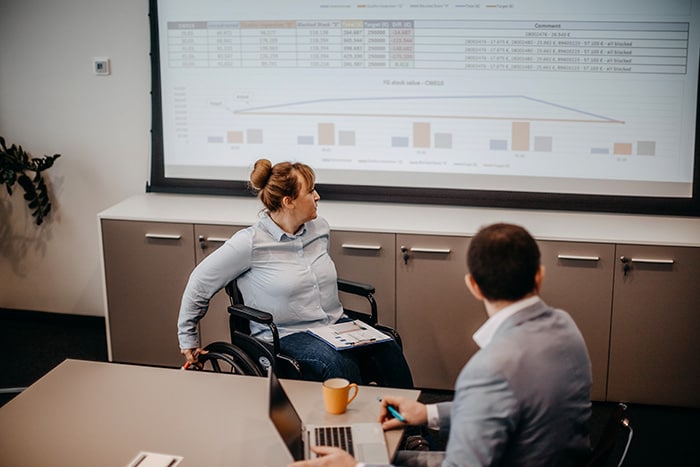
We are working to ensure that people with disabilities are included in public health data. This involves addressing multiple areas where people with disabilities are not represented, or are underrepresented, in public health data collection. These data are essential for addressing health disparities and enhancing quality of life for people with disabilities across the lifespan.
Improving disability representation in data enables us to close gaps in health disparities, plan and prepare for unique needs during emergencies, and evaluate public health programs and policies. The following work provides examples of the value of ensuring people with disabilities are included in data. Together, we can better:
To improve representation of people with ID/DD in disability data, we are engaging the population through qualitative interviews, cognitive testing, and a feasibility study to develop a set of plain language questions that are easily understood by people with ID/DD. The final product will be an accessible checklist adapted from standard disability question sets to better identify people with ID/DD.
We launched a Prevention Research Centers project called Disability and Health Data Collaborative: Using Data to Promote the Health and Wellness of People with Disabilities, which aims to implement a multisite research study and establish a framework for a Disability and Health Data Collaborative using state Medicaid data and data linkages. This study will help characterize and evaluate the health and wellness of people with ID/DD. Over time, this work will include additional geographic areas and data sources. Findings may also inform healthcare policy and resource allocation decisions and evaluation of interventions and their outcomes.
Our Disability and Health Data System (DHDS) is an online interactive source of state, regional, and national data on the health and demographics of adults with disabilities. States rely on this information to understand the health status of their population with disabilities and to tailor health programs for this population. Through DHDS, states can easily identify disability status by approximately 30 measures of health (such as smoking, physical activity, obesity, hypertension, heart disease, and diabetes) and can use this information to inform policies and practices that address health disparities and support people with disabilities.
We collaborate with the Association of State and Territorial Health Officials (ASTHO) and the Council of State and Territorial Epidemiologists (CSTE) National Syndromic Surveillance Program Community of Practice to better identify emergency department visits by people with disabilities. This work will have a sustainable impact on national, state, and local response capacity to detect and monitor the health and well-being of people with disabilities during current and future public health emergencies.
We work with CSTE to assess current practices for collecting data on people with disabilities during emergencies and to identify existing disability-related data elements states and territories can include on their Emergency Operations Center Situation Reports.
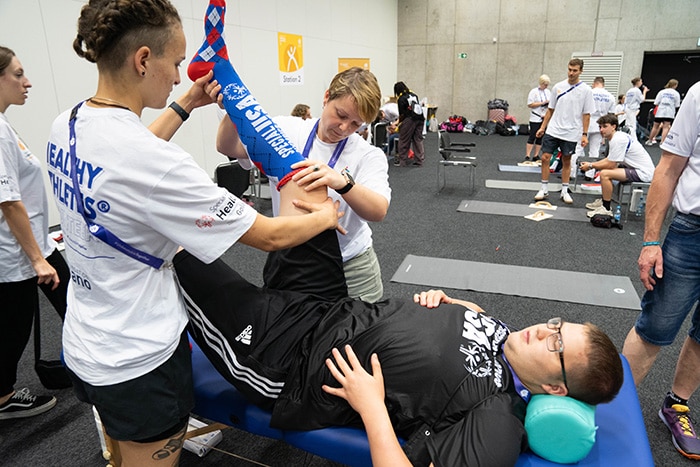
We work with community partners to develop, evaluate, and disseminate inclusive health practices focused on people with ID/DD and people with mobility limitations.
We fund the Special Olympics Healthy Athletes® and Healthy Communities Programs to provide Special Olympics athletes with increased access to free health screenings, education, services, supports, and referrals for follow-up health care as well as year-round health promotion and disease prevention programs. Our partnership with Special Olympics focuses on reducing barriers to inclusive health services and programs, challenging misperceptions, eliminating stigma, and improving the health of people with ID/DD by
- Training healthcare professionals to conduct and support Healthy Athletes screening events throughout the United States.
- Increasing the availability of data during and after screening events using digital health technology to evaluate effectiveness and provide critical health information on this population.
- Providing disability awareness training to healthcare professionals, community wellness partners, schools, and other collaborators who have limited or no experience working with people with ID.
CDC’s partnership with the National Center on Health, Physical Activity and Disability (NCHPAD) primarily focuses on reducing health disparities and improving the health of people with mobility limitations by delivering health promotion programs and expanding the capacity of healthcare and community-based providers to serve the health needs of people with mobility limitations.
Through CDC funding, NCHPAD developed a comprehensive, evidence-based set of wellness modules that help tailor health promotion programs to the unique needs of people with a range of disability and mobility issues. This includes a new training module for healthcare providers who are involved in referring patients to specialists to educate them on disability awareness and reducing ableism in medical care.
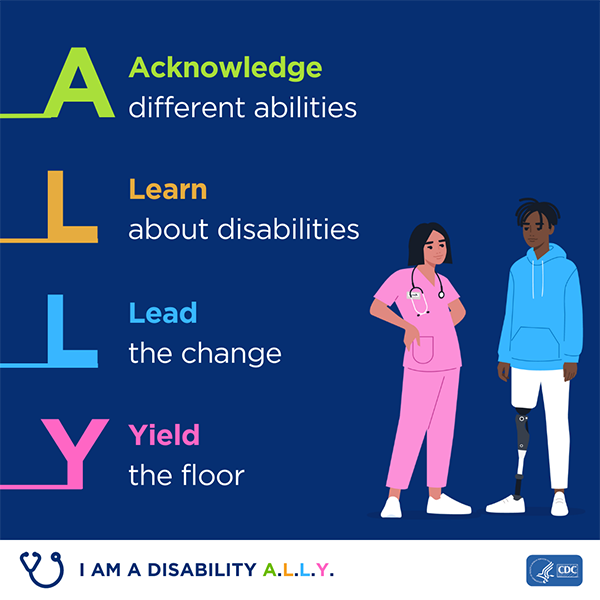
CDC launched a new digital toolkit with shareable graphics and sample social media posts to help partners advocate for inclusion and accessibility in healthcare settings. This toolkit includes information on how providers can make small changes in their practice to increase accessibility and inclusion for people with disabilities and their families. Videos in the toolkit, featuring Special Olympics athletes, amplify the voices of people with lived experience on why disability allyship is important. Voices of healthcare providers who are passionate about disability inclusion and allyship are also included. When healthcare providers champion inclusive practices, everyone benefits. Resources and trainings for healthcare providers are available to help build a more inclusive practice.
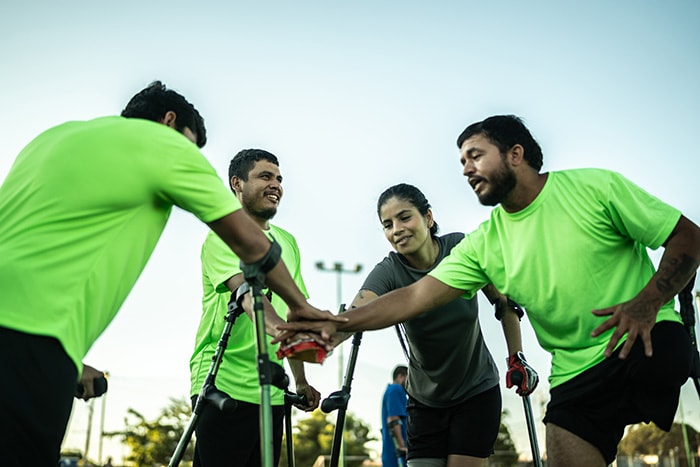
We invest in State Disability and Health Programs to improve health outcomes among people with mobility limitations and intellectual disabilities. These programs have reached 3.2 million people nationwide through the implementation of 39 evidence-based strategies and interventions focusing on physical activity, nutrition, diabetes, and other health topics significant for this population. The programs strengthen partnerships and design, create and implement projects to improve the health of people with disabilities in their states.
In 2021, we began a new 5-year cycle with ten State Disability and Health Programs, with an increased focus on engagement with high-quality routine preventive healthcare; adoption of healthy lifestyle behaviors; and early identification, management, and control of chronic disease and mental health conditions among people with ID/DD and people with mobility limitations. These programs will implement and evaluate Living Well in the Community, a training designed to assist people with disabilities in setting goals to support their overall quality of life and well-being.
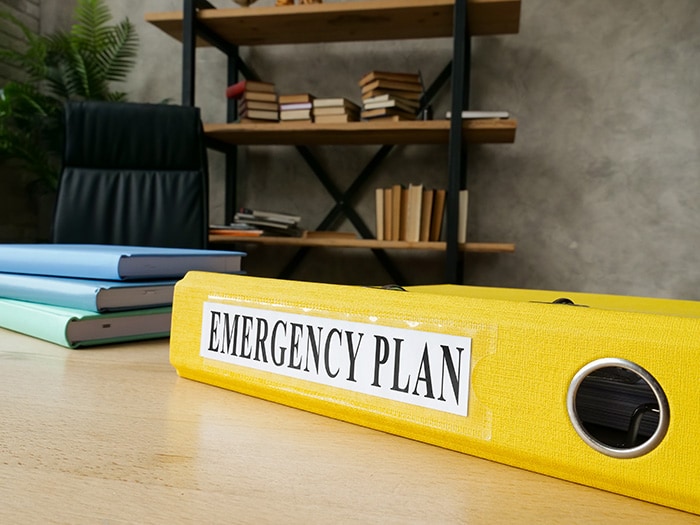
We have partnered with ASTHO and the National Association of County and City Health Officials to embed disability specialists in state, territorial, and local health departments’ public health emergency preparedness and response programs to ensure issues impacting people with disabilities are considered in planning and response efforts. This project has demonstrated that disability specialists can enhance the capacity of local health departments to include people with disabilities in their preparedness, response, and ongoing public health data collection and programs.
During the COVID-19 pandemic, we supported a technical assistance and training center through the Association of University Centers on Disabilities. The role was to disseminate emergency preparedness and response resources, along with the development of a central, online repository of practice-based materials on emergency preparedness tailored for people with disabilities, caregivers, and the emergency and healthcare providers who serve them. Through these efforts, an online toolkit called Public Health is for Everyone now contains more than 100 COVID-19 resources relevant to people with disabilities.

